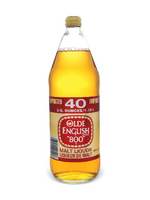- Messages
- 9,364
- Reactions
- 23,647
I have no doubt that many here are descended from people who came here from England within the last 400 years. That being the case, some of you may have wondered about the English language - one that I had to learn as a child, and has provided me with great amounts of deep thinking over the last 70-something years. I love it, and have studied it in great detail, even have a degree in English Literature to support my never-ending interest. One of the endlessly fascinating facets of modern English is how much it has changed since the Normans arrived in 1066, and ruined the plot somewhat. Not all was lost, and the language you are about to hear was common enough outside the aristocracy and royal circles until sometime around the middle of the 13th C, when the move towards English of a more recognisable form made itself felt more or less from end to end of the country. Chaucer might have known much of this, but it is not the english that he spoke - THAT was called Middle English, and had much French in it, as does over 40% of the language we speak today.
This is Olde English [OE] - AKA Anglo-Saxon - the language spoken by Alfred the Great, king of Wessex, who united the various elements of what was then a divided England against the occupying Danes, and insisted that men learnt to read and that the language they learnt - Western Wessex dialect - became the lingua franca of the kingdom, now known, in his own writing, as Aengland.
This bit of fun is something that many of us here in UK use to occupy long dark evenings - transliteration of a well-known stuff into Anglo-Saxon/OE, just because..... Anyhow, here in our part of England at this time of year it is almost dark at 3.30 pm, and full-dark by 4.....the evenings can be long if you ignore the haunted fish-tank in the corner.
In the 1950's, with children's TV a comparative innovation, there were a number of hand-drawn, stop-action cartoon programmes - this one, 'Noggin the Nog', is one of them.
Work with the settings, and you'll find the subtitles in modern English, and Old English - see how much you can get out of them. Knowing a bit of German, and understanding where many present-day English words have come from, will help you get more out of it.
Haeve atte!
This is Olde English [OE] - AKA Anglo-Saxon - the language spoken by Alfred the Great, king of Wessex, who united the various elements of what was then a divided England against the occupying Danes, and insisted that men learnt to read and that the language they learnt - Western Wessex dialect - became the lingua franca of the kingdom, now known, in his own writing, as Aengland.
This bit of fun is something that many of us here in UK use to occupy long dark evenings - transliteration of a well-known stuff into Anglo-Saxon/OE, just because..... Anyhow, here in our part of England at this time of year it is almost dark at 3.30 pm, and full-dark by 4.....the evenings can be long if you ignore the haunted fish-tank in the corner.
In the 1950's, with children's TV a comparative innovation, there were a number of hand-drawn, stop-action cartoon programmes - this one, 'Noggin the Nog', is one of them.
Work with the settings, and you'll find the subtitles in modern English, and Old English - see how much you can get out of them. Knowing a bit of German, and understanding where many present-day English words have come from, will help you get more out of it.
Haeve atte!
Last Edited:












